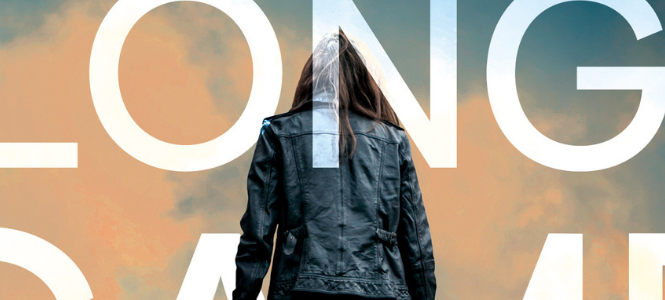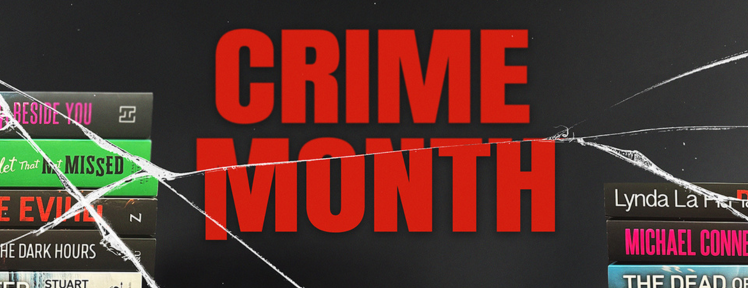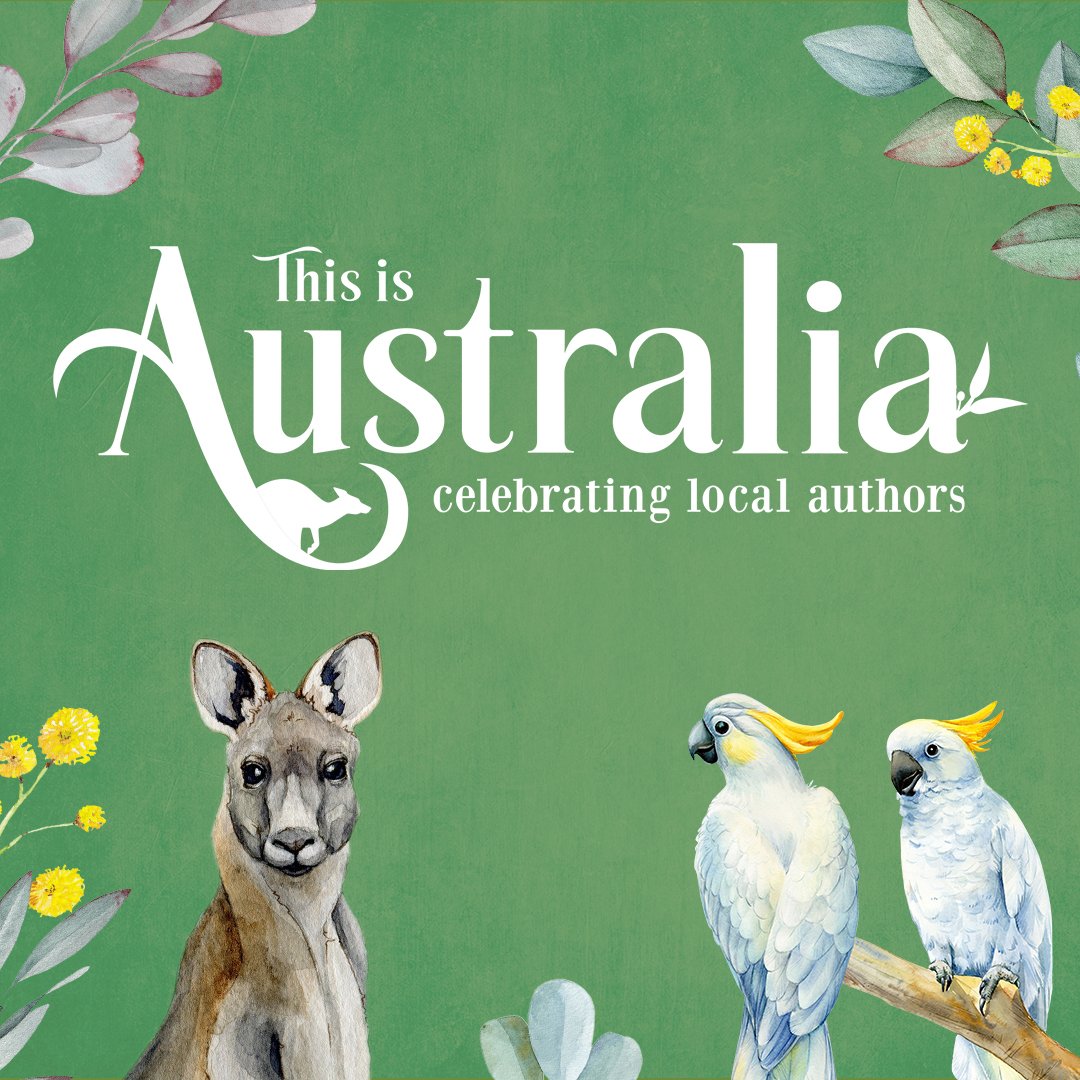Simon Rowell has worked on outback oil rigs, managed nightclubs, been a tour guide and run marketing campaigns. His first book, The Echo of Others, was longlisted for the Ned Kelly Awards for Best First Crime in 2018. He lives with his wife, Karen, in rural Victoria on a farm full of rescued animals. His latest book is The Long Game.
Today, Simon Rowell is on the blog to answer our Ten Terrifying Questions! Read on …
1. To begin with why don’t you tell us a little bit about yourself – where were you born? Raised? Schooled?
I was born in Adelaide, the eldest of four siblings. Whilst still a teenager I worked in a couple of interesting jobs in outback South Australia, first in the Cooper Basin oil and gas fields and then laying a water supply pipeline through the desert into the area that would later become the town Roxby Downs. I then worked in hospitality, going on to manage a number of hotels in Adelaide, with a stint as a tour guide north of Alice Springs thrown in.
At twenty five I decided to get serious and enrolled in business school, graduating a few years later with a degree in International Business from Flinders University, and a marketing qualification from the University of South Australia. In early 2001, I met my future wife and moved to Melbourne, where I worked as a corporate branding consultant for a number of years. We tree-changed to country Victoria in 2014, and now live on a farm west of Melbourne, with our dog, Molly, and a menagerie of rescued farm animals.
2. What did you want to be when you were twelve, eighteen and thirty? And why?
I can’t recall what the twelve year old me wanted to be, but by eighteen I knew I wanted to be a writer. I was always a voracious reader, but even at that age knew I needed more life experience to fuel my writing, so I put the dream away for the time being. Looking back, that desire for life experience is what probably drew me to jobs working in the outback, wanting some sort of Hemingway or Karen Blixen-type adventure.
At thirty, my focus was on building my career in business, but I never lost the dream of writing as a vocation. I finally began work on my first book, The Echo of Others, when I was 48, so I got there in the end.
3. What strongly held belief did you have at eighteen that you don’t have now?
I would say nearly all of them, most of which could sit under the broad heading of black-and-white certainties. The eighteen year old me thought he knew it all, but I can see now I was a roughly fashioned lump of clay rather than a finished sculpture. I believed in my own bravado back then.
The older I get, the more nuanced ideas become. I am much less presumptive and more sympathetic towards other people nowadays, and enjoy challenging my own beliefs. The idea of not growing emotionally is a complete anathema to me and I think, to a large extent, that this comes from reading. Through books you can reflect on the lives and experiences of others, and this helps build reserves of empathy.
4. What are three works of art – this could be a book, painting, piece of music, film, etc – that influenced your development as a writer?
Viewing the Shaw Memorial, an incredibly intricate sculpture of African-American Union soldiers by Augustus Saint-Gaudens, demonstrated to me the need to put in the extra work to get things right. The memorial took fourteen years to complete and was well overdue, but Saint-Gaudens said that the sculpture would stand there for centuries, so taking the time to do the job properly was paramount. When unveiled, it was said of the subjects that “one can almost hear them breathing as they march”. It now stands on the edge of Boston Common as one of the world’s greatest pieces of public artwork, over 120 years later.
In terms works of fiction, the collected works of Michael Connelly are most influential, although my favourite book overall is Colum McCann’s Let The Great World Spin which is a masterclass in layered, literary fiction.
The third work of art would be the 1998 Australian crime film, The Interview, which features some exceptionally clever writing. The vast majority of the time is spent with a suspect and two detectives in a police interview room and it is riveting.
5. Considering the many artistic forms out there, what appeals to you about writing a novel?
The plot for The Long Game was sketched out on a café napkin over a 10 minute burst of scribbling. The next day I was writing the book. That’s what really appeals to me—that you can build something meaningful from an idea and a keyboard. A novel gives limitless possibilities to explore and offer freedoms that are hard to match in other forms. I enjoy adding layers into stories that readers can connect with and this would be harder to achieve in other forms of art.
‘The plot for The Long Game was sketched out on a café napkin over a 10 minute burst of scribbling. The next day I was writing the book. That’s what really appeals to me—that you can build something meaningful from an idea and a keyboard.’
6. Please tell us about your latest novel!
Detective Sergeant Zoe Mayer is just back from extended leave for PTSD, alongside her new service dog, a golden retriever named Harry. As the story unfurls, we get to understand what has happened to cause the PTSD and why people now either seem to venerate or despise her.
Her first case back is the murder of a local surfer named Ray Carlson, who is found dead in his home. There’s an obvious suspect for the murder, and Zoe and her partner soon make an arrest. But it’s all too neat, and Zoe starts to suspect that all is not as it seems. Soon she is at odds with not only criminals, but also her colleagues and prosecutors.
Then someone starts trying to hunt Zoe down.
What appears like a relatively straightforward story at the beginning takes on a lot of twists and turns, as Zoe’s world is shaken upside down as she pursues the truth.
7. What do you hope people take away with them after reading your work?
Although the novel is action-driven, with a tough and clever investigator, I hope that people appreciate Zoe’s resilience against those who want to bring her down. Often, she finds herself isolated, but she maintains faith in her own instincts. She backs herself, which I particularly respect.
Her service dog, Harry, who comes to play a strong role in the book, has been particularly well received by early reviewers and I hope readers will love him just as much.
8. Who do you most admire in the writing world and why?
The talented Irish writer, Colum McCann. Apart from writing his amazing collection of books, he co-founded Narrative 4, a global organisation that uses personal storytelling to build empathy between young people so they can improve their communities.
9. Many artists set themselves very ambitious goals. What are yours?
My goals are simple, rather than ambitious. It is for readers to connect with my main characters and enjoy The Long Game. The novel is the first book in a planned series of at least three books, possibly many more, and I hope that readers then look forward to reading every book in the series as it comes out. The second book in the series has already been picked up by my publisher, Text Publishing, which is a big thrill and I am working on this one right now.
10. Do you have any advice for aspiring writers?
The first is to read widely and become educated about the craft of writing.
I did not do any formal study in writing, but read extensively on authors discussing the art of writing. No one has all the answers, but if you invest the time, you will pick up a mountain of good quality advice that you can use.
Another piece of advice would be to find your own voice and work to polish that style of writing. As I began writing, I soon discovered that the style in which I write was like a fingerprint, pretty much unique to me, and that trying to write like someone else doesn’t work well. I write punchy, hardboiled crime novels with strong female characters. If I tried to write historical fiction or domestic dramas, it probably wouldn’t work, so I lean in to my strengths.
The last piece of advice would be to be open to constructive criticism and feedback. Take it away and mull it over. Being defensive against feedback is a very slippery slope. I have taken on and incorporated almost every piece of feedback I received on The Long Game, as well as my first novel, The Echo of Others.
Thank you for playing!
—The Long Game by Simon Rowell (Text Publishing) is out now.

The Long Game
A summer of relentless heat. A local surfer named Ray Carlson is found dead in a house not far from Portsea back beach. There’s a kitchen knife deep in his chest, and blood everywhere.
Detective Sergeant Zoe Mayer is scarcely back from extended leave, and still wrestling with her demons, but she is assigned the case—alongside her new service dog, Harry, whose instincts help her in unexpected ways. There’s an obvious suspect for the murder, and Zoe makes an arrest. But it’s all too neat, and none of Zoe’s colleagues believes her theory that the whole thing is a stitch-up...







 What do we know about the Boy Swallows Universe Netflix show?
What do we know about the Boy Swallows Universe Netflix show?  Booktopia’s top thrilling fiction picks for Crime Month
Booktopia’s top thrilling fiction picks for Crime Month  Booktopia’s Top First Nations Book Recommendations for 2023
Booktopia’s Top First Nations Book Recommendations for 2023
Comments
No comments